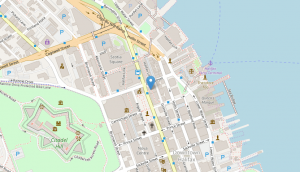In these trying days of the Covid-19 Pandemic, governments across Canada have imposed restrictions on individual liberties, claiming to act under emergency public health orders. While many provisions of these orders may be justifiable in this situation, some are not and would not stand scrutiny under the Charter of Rights and Freedoms. As we write this blog, in Nova Scotia, there are numerous restrictions in place which affect Charter-protected rights. While many of these restrictions are common sense response to the current Covid-19 Pandemic, some of the restrictions are clearly overreach and cannot be justified as restrictions on individual rights. Other restrictions, such as provincially imposed bans on interprovincial travel are most likely unconstitutional, being the exclusive jurisdiction of the Federal Government.
While bans on public gatherings of large numbers of people are sensible, one questions the legality of restrictions which affect the rights of responsible individuals from walking their dog in a park, hiking, and engaging in other manners of exercise, all the while keeping the required social distance. While bans on gatherings of large groups of people may be a proportionate response to the Covid-19 Pandemic and the object of limiting transmission of this virus, it is hard to see how restrictions on an individual walking her dog alone is in any way proportionate to the end of restricting transmission of this virus. Some of these restrictions make no sense, are not proportionate, and would not survive a legal challenge in court.
The order restricting public gatherings and activities in Nova Scotia is in many respects overbroad and allows excessive discretion to the police in terms of enforcement. This was further complicated by the daily musings of Stephen McNeil and Robert Strang which some police officers seem to have interpreted as having the force of law; they are not. The net effect of such overbroad regulation, coupled with the inappropriate comments of persons in authority, is that the police have issued Covid-19 tickets to people who are doing nothing that could be interpreted as risking the transmission of the virus. Nova Scotia police have issued Covid-19 tickets to a woman alone walking her dog; a man who walked across the Commons in Haliax; a senior who wandered onto a street where he did not reside, to give a few examples. Nova Scotia has a long and sad history of police enforcement which unfairly targets minorities; witness the recent “carding” issue.
It was unfortunate to see the premier and the chief public health officer push the police to issue tickets as opposed to a process which emphasizes education, which was very successful in British Columbia and other jurisdictions. The whole process of ticketing individuals who are posing no risk to spreading the virus is not a proportionate response. In responding to this pandemic, the Nova Scotia Government appears to have emphasized petty and inappropriate police enforcement of over-broad regulations at the expense of focusing on areas of high risk; witness the debacle at the Northwood Seniors’ Facility in Halifax.
We would strongly recommend that anyone who was ticketed by the police under the Covid-19 regulations contest these tickets in court. In our opinion, many of the tickets issued by the police violate constitutional and Charter-protected rights and can be successfully challenged in Court. We suggest that the Nova Scotia government reconsider the prosecution of individuals ticketed by the police in regard to Covid-19 restrictions. Given that the Government and its police agencies were operating on overbroad regulations which were poorly communicated to the public at large, the Government should consider an amnesty in regard to these tickets and not overwhelm the court system with prosecutions if and when some semblance of normality returns.
